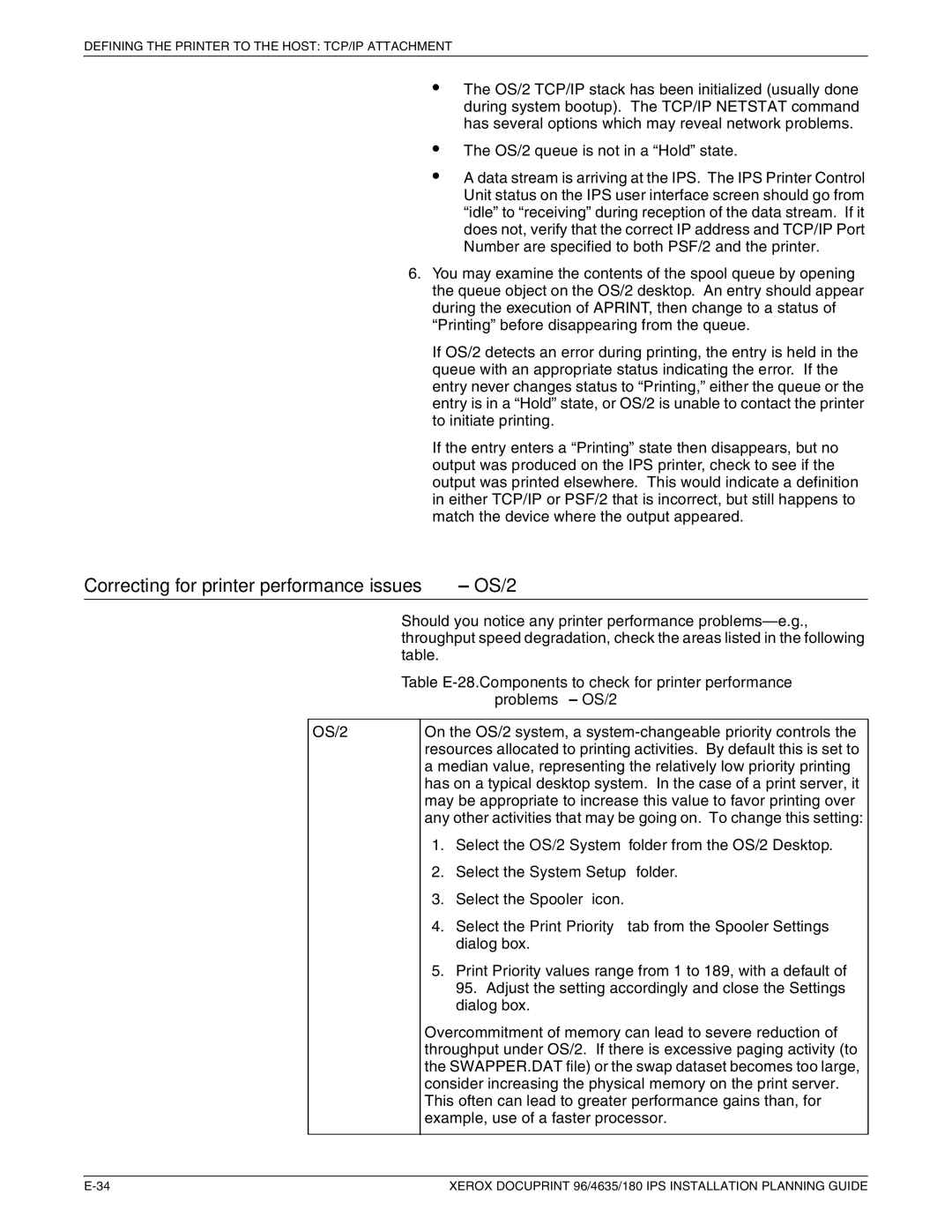
DEFINING THE PRINTER TO THE HOST: TCP/IP ATTACHMENT
•
•
•
The OS/2 TCP/IP stack has been initialized (usually done during system bootup). The TCP/IP NETSTAT command has several options which may reveal network problems.
The OS/2 queue is not in a “Hold” state.
A data stream is arriving at the IPS. The IPS Printer Control Unit status on the IPS user interface screen should go from “idle” to “receiving” during reception of the data stream. If it does not, verify that the correct IP address and TCP/IP Port Number are specified to both PSF/2 and the printer.
6.You may examine the contents of the spool queue by opening the queue object on the OS/2 desktop. An entry should appear during the execution of APRINT, then change to a status of “Printing” before disappearing from the queue.
If OS/2 detects an error during printing, the entry is held in the queue with an appropriate status indicating the error. If the entry never changes status to “Printing,” either the queue or the entry is in a “Hold” state, or OS/2 is unable to contact the printer to initiate printing.
If the entry enters a “Printing” state then disappears, but no output was produced on the IPS printer, check to see if the output was printed elsewhere. This would indicate a definition in either TCP/IP or PSF/2 that is incorrect, but still happens to match the device where the output appeared.
Correcting for printer performance issues – OS/2
| Should you notice any printer performance | |
| throughput speed degradation, check the areas listed in the following | |
| table. | |
| Table | |
|
| problems – OS/2 |
|
|
|
OS/2 |
| On the OS/2 system, a |
|
| resources allocated to printing activities. By default this is set to |
|
| a median value, representing the relatively low priority printing |
|
| has on a typical desktop system. In the case of a print server, it |
|
| may be appropriate to increase this value to favor printing over |
|
| any other activities that may be going on. To change this setting: |
|
| 1. Select the OS/2 System folder from the OS/2 Desktop. |
|
| 2. Select the System Setup folder. |
|
| 3. Select the Spooler icon. |
|
| 4. Select the Print Priority tab from the Spooler Settings |
|
| dialog box. |
|
| 5. Print Priority values range from 1 to 189, with a default of |
|
| 95. Adjust the setting accordingly and close the Settings |
|
| dialog box. |
|
| Overcommitment of memory can lead to severe reduction of |
|
| throughput under OS/2. If there is excessive paging activity (to |
|
| the SWAPPER.DAT file) or the swap dataset becomes too large, |
|
| consider increasing the physical memory on the print server. |
|
| This often can lead to greater performance gains than, for |
|
| example, use of a faster processor. |
|
|
|
XEROX DOCUPRINT 96/4635/180 IPS INSTALLATION PLANNING GUIDE |
